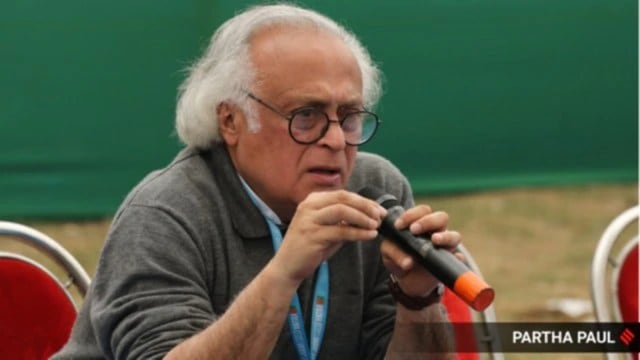In a letter addressed to Union Environment Minister Bhupender Yadav on Saturday, Congress MP Jairam Ramesh has sought that all clearances granted to the Great Nicobar infrastructure project “must be suspended” and the proposed project should be reviewed “thoroughly and impartially”, including by “parliamentary committees concerned.”

Ramesh has also raised issues such as 13,075 hectares of forest land diversion, the location of the project area in a prohibited zone, and the potential impact on the particularly vulnerable Shompen tribe group. Ramesh said that the project could result in a “genocide of the Shompen community”.
Story continues below this ad
He also raised the concern that locating such a massive project in an earthquake-prone zone that saw permanent subsidence of about 15 feet during the December 2004 tsunami jeopardises investment, infrastructure, the people and the ecology.
The Nicobar project involves the construction of a port, airport, power plant, township and allied infrastructure over a 166 sq km area and would involve the felling of up to a million trees in rainforests.
Referring to the submissions made before the National Green Tribunal (NGT) recently in connection with a plea against the project, Ramesh pointed out that even as parts of the project fell in a prohibited coastal zone, it was concluded that they were, in fact, in a permissible area. He said that the operations of the NGT’s high-powered committee (HPC), which concluded that the project fell in a permissible area, have been “opaque”.
“The HPC’s conclusions are at variance with the information submitted by the Andaman and Nicobar Coastal Management Authority. The HPC’s operations have been opaque – details of its ground truthing activities and its report has not been made public, and the new information that would have justified the recategorisation of the land has not been provided to stakeholders,” Ramesh said in his letter.
Story continues below this ad
The NGT had ordered in April 2023 that the HPC should revisit the environmental clearance granted to the Nicobar project to address some unanswered deficiencies pointed to in the challenge against the clearance. These pertained to coral conservation, the location of the project area in Island Coastal Regulation Zone-IA (the prohibited area), and the limited baseline data collection for assessment of the project’s environmental impact.
In an affidavit submitted to the NGT on July 26, the Andaman and Nicobar Islands Integrated Development Corporation Limited (ANIIDCO) had submitted the conclusions of the HPC for the first time since it was formed, The Indian Express had reported.
On the project’s potential impact on the Shompen tribe, Ramesh said that the “Island’s Shompen Policy, notified by the Union Ministry of Tribal Affairs, which requires authorities to prioritise the tribe’s welfare when considering large scale development proposals, was neglected”.
Ramesh added that the project violates the letter and spirit of the Forest Rights Act, 2006, which holds the Shompen as the sole legally empowered authority to protect, preserve, regulate and manage the tribal reserve. He said the tribal council of the islands was also not adequately consulted as per law and pointed out that the tribal council has in fact objected to the project and even revoked its ‘no objection’ letter on grounds that it was misled.
Story continues below this ad
Earlier on Thursday, in a written statement to the Rajya Sabha, Minister of State for Environment Kirti Vardhan Singh did not make a mention of the revocation of the no-objection letter by the tribal council when asked about it by Trinamool Congress MP Mohammed Nadimul Haque.
Singh stated that the record of forest rights was approved in November 2022 and the chairman of tribal council of Campbell Bay, Little and Great Nicobar were “duly consulted during the meeting held on 13.8.2022 and no objections were raised during the statutory period prescribed in the Scheduled Tribes and Other Traditional Forest Dwellers (Recognition of Forest Rights) Act, 2006”.









